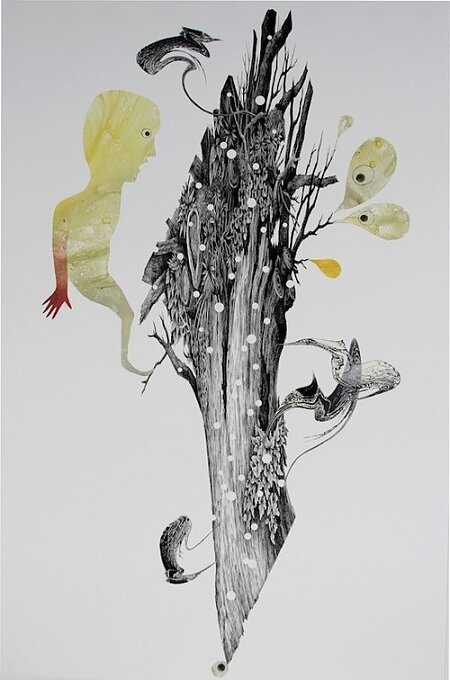
The Lion
*
The next few hours were spent debating, plotting. No firm plans emerged. Eventually, they all settled down into a peaceful stupor, happy not to argue, at least for a little while.
Goombeldt got up, poured himself a cup of water from the drinking jug next to the stove.
“Do you remember the lion?” he said.
“Yes,” the other two replied.
That year, their family had been granted the highest honor: to hunt a lion in the Garden of Trust. Nothing as important had ever happened in their lives, until then. They hadn’t known why the Elders had selected them.
“I haven’t said this before, but I didn’t like it. Didn’t like it at all.”
“Neither did I,” each woman responded.
This was the first time they had ever discussed it.
The lion had just stood there, friendly and curious. All aggression had been fed out of it. It was used to people. Goombeldt knew they had to bring a dead lion back to the Elders. If they didn’t, they would be considered ungrateful.
Goombeldt had looked at his wife, his daughter. Their faces were confused. In the distance, several guards observed them, smoking their long tobacco sticks. They would report the family if anything went wrong. It was up to Goombeldt as the man of the family. The grass was green, meticulously watered. Here and there, patterns of colorful sticks stood in the earth, culminating in bursts of color. They had never seen these motionless creatures before. Where had all this come from, here in the desert?
The lion just watched, curious, a heavy belly and a beautiful curl of hair. It wagged its tail. It seemed surprised when the spear hit. Its elegant body collapsed on the green grass. The blood flowed reluctantly, as if the damage were not really serious, as if the lion were just relaxing, taking stock of its condition. But the Elders’ spears were sharp. Hopeless spasms followed the moments of stillness. The surprised roar was scary in its sadness, the beautiful body incongruous on its side.
“We had to do it, didn’t we?” Goombeldt’s face now was featureless, old.
Yenderia had almost died at four months of age. Zungvilda remembered the fear, the dread, the bitter hope she had felt. She had prayed that the Elders take away her daughter’s illness, and they’d listened. Yenderia recovered. Didn’t the Elders have the right to take her back? Now, after all these years?
*
A knock on the door. They were in shock, shattered by the reality of what was about to happen. They hadn’t had enough time to plan anything—not even enough to discuss their lives, their feelings. Yenderia was silent, her eyes red. She approached Goombeldt, they embraced. She hugged Zungvilda next, and the mother felt the daughter’s tense shoulders relax, just for a moment, then shake with unexpected tears. Quickly, Yenderia controlled herself. She was ready.
She opened the door, and the three of them stared into the bright outside.
There was no one.
“The Elders are not here,” Goombeldt said.
“It can’t be.” Yenderia frowned. A moment of confused silence hung over them. “It’s not right. I will go myself. I will go to the Temple. They don’t change their minds, they don’t.”
“How do you know that?” Goombeldt begged.
“I know. Someone knocked on the door, didn’t they?”
“Stay,” Zungvilda cried. “If they still want you, they’ll come back for you.”
“Why make them come back?”
“What do you have to lose?” Goombeldt challenged.
“Everything. The Balance. The future. My chance to be an angel. Don’t you understand?”
Zungvilda looked into herself. She didn’t know how to answer. Where did the angels go from here? In silence, Yenderia put her hands on her parents’ shoulders, forming a small triangle—so tenuous, transient. It lasted. It didn’t last.
And then Yenderia was outside, walking toward the Temple, her parents watching her from the house steps. She didn’t look back. The Temple loomed taller, darker than ever. A thousand times, Zungvilda was tempted to run after her daughter, hold on to her, beg her to stay. And a thousand times she knew she had to let go. Goombeldt was as powerless as a shapeless bulk of black rock next to her, helpless like the lion, the spear of this moment embedded in his heart.
